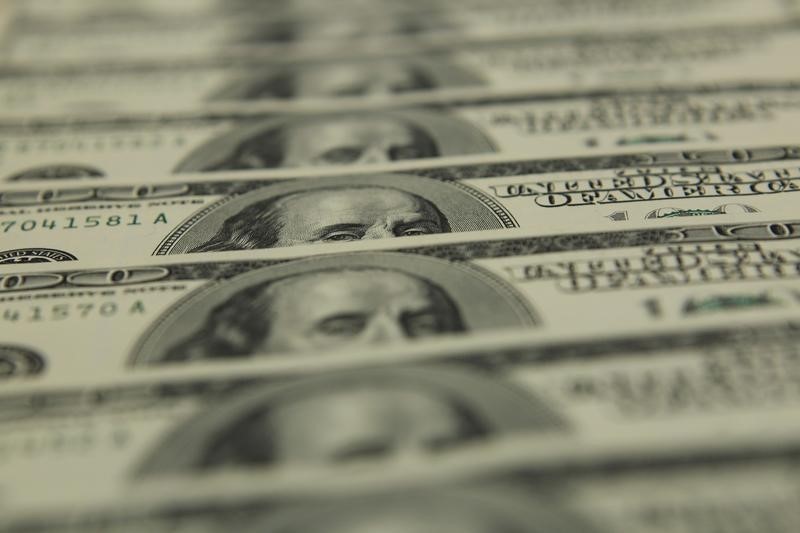Investing.com– Most Asian currencies kept to a tight range on Friday, while the dollar was headed for a negative week ahead of key U.S. nonfarm payrolls data, which is expected to provide more cues on the path of U.S. interest rates.
The data comes just a few days after the Federal Reserve kept interest rates steady and shot down expectations for an interest rate cut in March. But Fed Chair Jerome Powell struck a somewhat optimistic note on the U.S. economy, which drove investors into risk-driven assets despite the prospect of higher-for-longer interest rates.
This saw traders sell off the dollar after a short-lived bounce. The and were flat in Asian trade on Friday, and were set to lose about 0.4% this week.
This trade aided most Asian currencies, with the – which is a key indicator of risk appetite towards Asian markets- rising 0.4%. The Aussie recovered from an over one-month low ahead of a next week, where the central bank is widely expected to keep interest rates steady.
and inflation readings released this week showed that while Australian inflation was easing, it still remained well above the RBA’s target range.
Losses in the dollar offered some relief to Asian currencies after a bruising start to 2024, with most regional units logging steep losses in January.
The was flat after largely lagging its regional peers in January. But the yen found some resilience in recent sessions amid growing conviction that the Bank of Japan was close to moving away from its ultra-dovish policies this year.
The rose 0.2% as data showed grew slightly less than expected in January, while the traded sideways.
The was among the better performers this week, recovering sharply from near record lows after the ruling BJP party unveiled a surprisingly conservative annual budget, which bodes well for India’s bloated fiscal deficit.
The was flat following a stronger-than-expected midpoint fix from the People’s Bank of China. Losses in the yuan were held back by reported intervention in currency markets by the PBOC, after a series of underwhelming purchasing managers index readings for January.
The readings indicated that an economic recovery in China showed little signs of improving in the first month of 2024.
Markets look to May rate cut as nonfarm payrolls approach
After the Fed largely downplayed bets on a March interest rate cut, traders began pricing in a 25 basis point cut in May.
The showed traders pricing in an over 60% chance for a May rate cut, with analysts also expecting the Fed to cut interest rates at least four more times after May.
While such a scenario bodes well for risk-driven Asian currencies, the Fed has given no indication that it will trim rates by a wide margin in 2024. The central bank reiterated that its plans to cut rates will be largely dictated by the path of inflation, which has so far remained sticky.
data is expected to provide more cues on the labor market. The Fed has also cited a cooling labor market as one of the major factors to drive interest rate cuts.
Read the full article here












